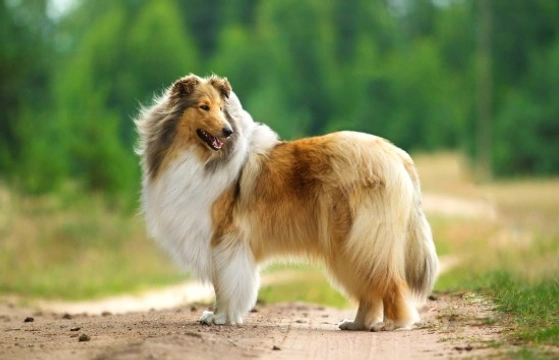Pets
Pets for studWanted petsBreedersAccessories & services
Knowledge hub
Support
Support & safety portal
How does spaying and neutering affect dogs?
Unless you are planning to breed from your dog, it is important to get then neutered as soon as they are old enough to go through the procedure. Not only does this remove the breeding urge from the dogs and of course ensure that you do not end up with unwanted puppies, but it also has lots of different benefits in terms of behaviour and health as well. Spaying is the name given to the procedure to de-sex a female dog, while neutering can refer to de-sexing either a male or female dog, but is usually used to refer to males.
Read on to learn more about how spaying and neutering affects dogs and bitches.
No unwanted puppies!
The first and most obvious benefit of spaying and neutering is, of course, that your dog will not produce unwanted puppies! While everyone loves puppies and many people like the idea of watching a litter being born and growing to maturity, there is no shortage of unwanted dogs and puppies within the UK, and unless you have a very good reason to deliberately breed from your dogs, neutering is the responsible choice.
No inappropriate sexual behaviour
Both male and female dogs will display a range of sexual behaviours when mature, although for female dogs, this generally only happens when they are in season. Male dogs, however, when un-neutered and adult, may display a wide range of inappropriate sexual behaviours, such as humping toys, bedding or even unlucky legs, seeking out bitches in heat, and generally behaving like a typical red-blooded male dog!
Calmer temperaments
Spaying and neutering also has a calming effect on both dogs and bitches, as they are no longer at the whim of their uncontrollable hormones. It does not, as some people wrongly assume, change the personality of the dog or bitch and turn them into a whole different animal, but it does mean that their lives will be more laid back, and that they will approach everything more calmly.
Less instinct to roam
Male dogs will often roam over wide distances when in search of a female to mate with, which can lead to poor recall, losing your dog, and your dog having a tendency to escape. When on the hunt for a partner, male dogs become very one track minded, and prioritise mating over their home, family, wellbeing and everything else! Similarly, when a female dog is in season, she will be keen to get out and find a partner, leading to her possibly having a tendency to dart off when your back is turned, or trying to escape from the home!
No fighting
Two un-neutered male dogs, particularly strangers, tend not to be very tolerant of the presence of each other, and may behave aggressively or defensively towards each other. Un-neutered male dogs are very territorial, and the presence of another dog in the area that they view as their territory is likely to lead to a standoff, and potentially a fight. Two male dogs fighting can be a very serious event, and two male dogs fighting over a bitch in season will often do each other serious harm, even sometimes fighting to the death.
While female dogs are on the whole less aggressive, they again will tend to not be very tolerant of another unspayed female dog on their patch!
No scent marking
When out walking, male dogs in particular like to pee on everything, scent-marking the area to let other male dogs know that this is their spot! While neutered male dogs may well do this too, for the un-neutered male, this behaviour is very prevalent, and they may also take to scent-marking around the home, which is of course highly undesirable! Female dogs are not as enthusiastic about scent marking, but unspayed females may scent mark within the home during their season.
Health benefits
Spaying or neutering your dog also gives them an advantage in the health stakes, and reduces the likelihood of a wide range of health conditions arising in later life, or in some cases, prevents them entirely.
Some of the conditions that neutering the male dog can prevent or minimise include:
- Testicular cancer
- Venereal disease
- Perineal hernia
- Inguinal hernia
- Perianal gland adenomas
- Prostate conditions
And for female dogs:
- Mastitis
- Breast cancer
- False pregnancy
- Cystic ovaries
- Uterine prolapse
- Ovarian tumours
- Cystic pyometra
- Chronic endometritis
Added to the list of health conditions that can be prevented or risk-reduced by spaying or neutering, spaying and neutering also reduces the likelihood of injuries caused by fighting, and even transmissible conditions that can be passed on by mating, such as brucellosis. Mating, pregnancy and birth are of course also all things that present some risks to female dogs, which are again, totally preventable by spaying!



